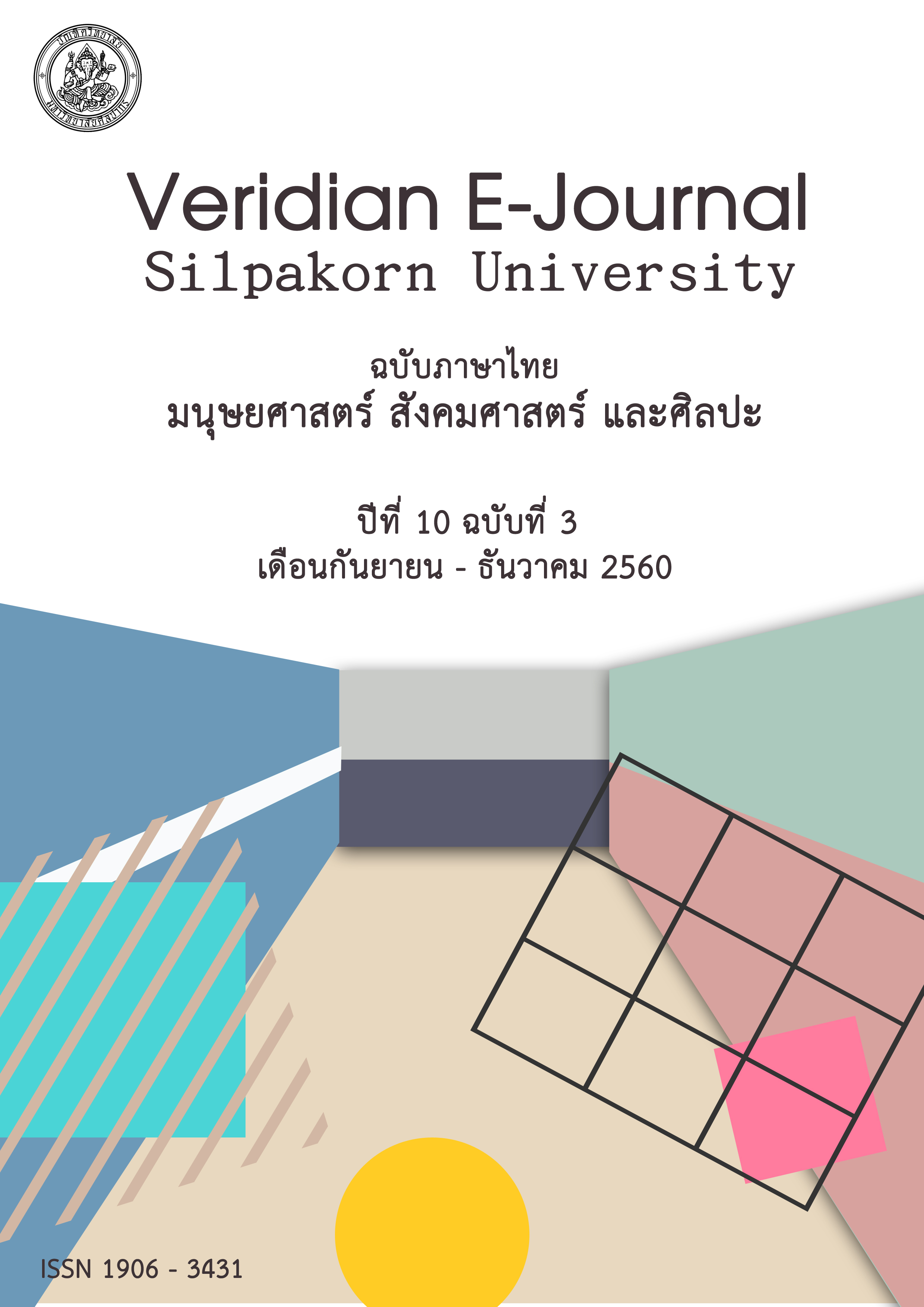ผลของการจัดการเรียนรู้แบบสืบเสาะหาความรู้ 7 ขั้น ร่วมกับกระบวนการแก้โจทย์ปัญหา ตามเทคนิคของโพลยา ที่มีต่อมโนทัศน์ทางวิทยาศาสตร์ ความสามารถในการแก้โจทย์ปัญหา และเจตคติต่อวิชาฟิสิกส์ ของนักเรียนชั้นมัธยมศึกษาปีที่ 5
Main Article Content
บทคัดย่อ
ผลการวิจัยสรุปได้ดังนี้
1. มโนทัศน์ทางวิทยาศาสตร์ของนักเรียนชั้นมัธยมศึกษาปีที่ 5 ที่ได้รับการจัดการเรียนรู้แบบสืบเสาะหาความรู้ 7 ขั้น ร่วมกับกระบวนการแก้โจทย์ปัญหาตามเทคนิคของโพลยา หลังเรียนสูงกว่าก่อนเรียน อย่างมีนัยสำคัญทางสถิติที่ระดับ .05
2. มโนทัศน์ทางวิทยาศาสตร์ของนักเรียนชั้นมัธยมศึกษาปีที่ 5 ที่ได้รับการจัดการเรียนรู้แบบสืบเสาะหาความรู้ 7 ขั้น ร่วมกับกระบวนการแก้โจทย์ปัญหาตามเทคนิคของโพลยา หลังเรียนสูงกว่าเกณฑ์ร้อยละ 70 อย่างมีนัยสำคัญทางสถิติที่ระดับ .05
3. ความสามารถในการแก้โจทย์ปัญหาของนักเรียนชั้นมัธยมศึกษาปีที่ 5 ที่ได้รับการจัดการเรียนรู้แบบสืบเสาะหาความรู้ 7 ขั้น ร่วมกับกระบวนการแก้โจทย์ปัญหาตามเทคนิคของโพลยา หลังเรียนสูงกว่าก่อนเรียน อย่างมีนัยสำคัญทางสถิติที่ระดับ .05
4. เจตคติต่อวิชาฟิสิกส์ของนักเรียนชั้นมัธยมศึกษาปีที่ 5 ที่ได้รับการจัดการเรียนรู้แบบสืบเสาะหาความรู้ 7 ขั้น ร่วมกับกระบวนการแก้โจทย์ปัญหาตามเทคนิคของโพลยา หลังเรียนสูงกว่าก่อนเรียน อย่างมีนัยสำคัญทางสถิติที่ระดับ .05
The purposes of this research were to compare scientific concepts, problem solving abilities, and attitude towards physics of eleventh grade students after using 7E learning cycle with Polya’s problem solving techniques with before using that, and to compare scientific concept of eleventh grade students after using 7E learning cycle with Polya’s problem solving techniques with the 70 percent criteria. The participants were 32 eleventh grade students who studied in the second semester of 2016 academic year from Piboonbumpen Demonstration School, Burapha University using cluster random sampling. The research instruments were 7E learning cycle with Polya’s problem solving techniques lesson plans, scientific concepts test, problem solving abilities test, and attitude towards physics evaluation form. The data were analyzed using mean, standard deviation, paired sample t-test, and one sample t-test.
The results were summarized as follows:
1. The posttest scores of scientific concept of eleventh grade students after learning with 7E learning cycle with Polya’s problem solving techniques were statistically significant higher than the pretest scores of that at the .05 level
2. The posttest scores of scientific concept of eleventh grade students after learning with the 7E learning cycle with Polya’s problem solving techniques were statistically significant higher than the 70 percent criteria at the .05 level.
3. The posttest scores of problem solving abilities of eleventh grade students after learning with 7E learning cycle with Polya’s problem solving techniques were statistically significant higher than the pretest scores of that at the .05 level
4. The posttest scores of attitude towards physics of eleventh grade students after learning with 7E learning cycle with Polya’s problem solving techniques were statistically significant higher than the pretest scores of that at the .05 level

